Iran denies reports of prisoner swap deal with US
Iran’s Foreign Ministry has denied reports of an agreement over the exchange of prisoners between Tehran and Washington, saying the ministry does not confirm the statements attributed to informed sources.
Speaking at a press conference on Monday, Foreign Ministry spokesman Saeed Khatibzadeh said while the issue of prisoners has always been on Iran’s agenda, the Sunday evening report by Lebanon’s Arabic-language al-Mayadeen news network is untrue.
“The issue of prisoners has been a humanitarian issue which has always been on the agenda of the Islamic Republic of Iran and has been pursued through other conversations and [diplomatic] channels separately from the JCPOA or related issues,” Khatibzadeh said.
Al-Mayadeen had quoted informed sources as saying that Washington would release four Iranians detained in the US and $7 billion of Iran’s illegally frozen funds in exchange for four Americans detained in Iran.
In Washington, US State Department spokesman Ned Price also denied the report on Sunday. “As we have said, we always raise the cases of Americans detained or missing in Iran. We will not stop until we are able to reunite them with their families,” he said.
White House chief of staff Ron Klain similarly said the report was untrue, adding there was no agreement to release the four Americans.
“We’re working very hard to get them released,” Klain told CBS’s Face the Nation. “We raise this with Iran and our interlocutors all the time, but so far there’s no agreement.”
Khatibzadeh also denied reports that Tehran and London had been in talks over the release of Nazanin Zaghari, an Iranian national who was found guilty of propaganda activities against the government last month and sentenced to one year in prison.
“There are no legal talks between us and Britain on this. The Judiciary must comment on the case,” the spokesman said.
“What is being discussed is about issues related to relations between the two countries. Of course, the British government has presented its views to us on various issues, and we have given back very clear answers,” he added.
The remarks came after a British Foreign Office spokesman claimed that “legal discussions are ongoing” to “explore options to resolve” the case.
British Foreign Secretary Dominic Raab also claimed that Iran’s treatment of Zaghari, who spent the final year of her five-year term in a previous case under house arrest with an electronic monitor tied to her feet, amounted to “torture”.
“I think she’s being treated in the most abusive, tortuous way. I think it amounts to torture, the way she’s being treated,” Raab said.
He also claimed that her fate was tied to the outcome of talks in Vienna on the future of the 2015 Iran nuclear agreement in addition to a debt that the UK government owes to Iran.
Tehran has repeatedly said that the debt Britain owes to Iran arising from the non-delivery of Chieftain tanks ordered by Iran’s former regime is not related to Zaghari's case.
Khatibzadeh said the debt dates back to several decades ago but has not been paid due to unimportant reasons.
“The original debt must have been paid off a long time ago,” the spokesman stated. “The sooner the British government fulfills its obligation, the better.”
He went on to say that only the payment of a small portion of the debt has not been decided, citing the spread of the coronavirus as the reason behind the delay in talks on the issue.
‘No hurry, no attritional game in Vienna’
Asked during the presser about the ongoing talks in the Austrian capital to fully recover the Joint Comprehensive Plan of Action through a US return to the deal, Khatibzadeh said what is important to Iran is that the JCPOA must be fully honored by the other side.
“This is what we have made clear at the Joint Commission for all participants,” he said, hinting at the United States’ unilateral withdrawal from the JCPOA in 2018 as the first party that reneged its contractual commitments.
“As the Leader of the Islamic Revolution mentioned, we are neither in a hurry nor will we enter an attritional game,” he added.
Khatibzadeh explained that the US needs to remove all the sanctions that were imposed after the JCPOA went into force in early 2016, especially the Trump administration’s sanctions, which have affected Iran’s interests under Paragraph 29 of the JCPOA.
Iran then should be able to verify the removal of the sanctions, he stressed.
The spokesman noted the “good progress” made during the Vienna talks that began a month ago, saying both sides reached a “common understanding” in many fields, including the need for the US to remove all sanctions imposed on Iran’s various sectors.
“There are serious differences of opinion on sanctions against individuals and the US’s previous lists of individuals, but we must continue our dialogue within the framework of the Joint Commission,” Khatibzadeh added.
He also maintained that Iran’s position is based on a very firm legal and logical footing.
VIDEO | Iran-Syria: For Resistance
Qassam Brigades claims killing 3 Israeli troops in northern Gaza
More alive than ever: Sayyed Hassan Nasrallah's legacy grows stronger in martyrdom
Occupation of Syria’s highest peak Mount Hermon part of ‘Greater Israel’ project
Iran: Syrian people will decide their future without foreign interference
IRGC says Iran’s power exceeds borders, warns enemies to adjust themselves
Dozens detained, several wounded in Israeli raids in West Bank
‘Ethnic cleansing’: Hamas blasts Israeli attacks on Gaza hospital amid intl. silence


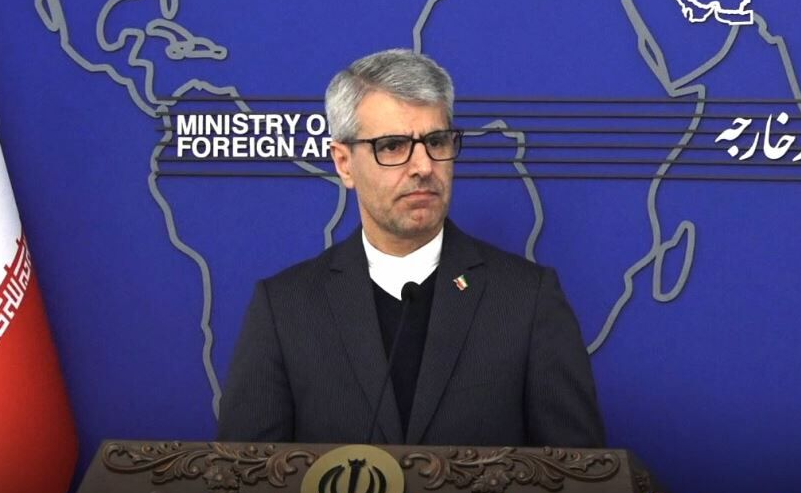
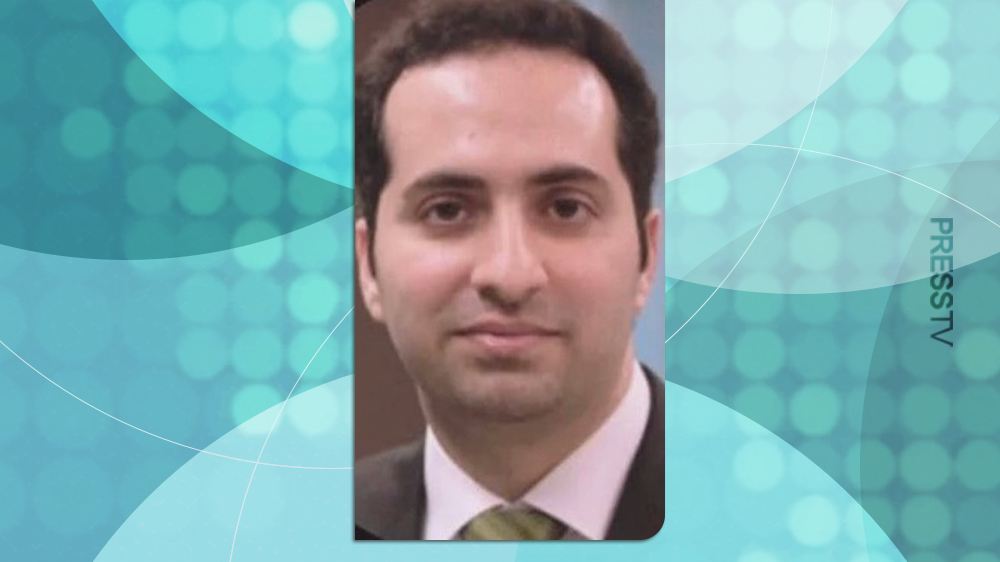




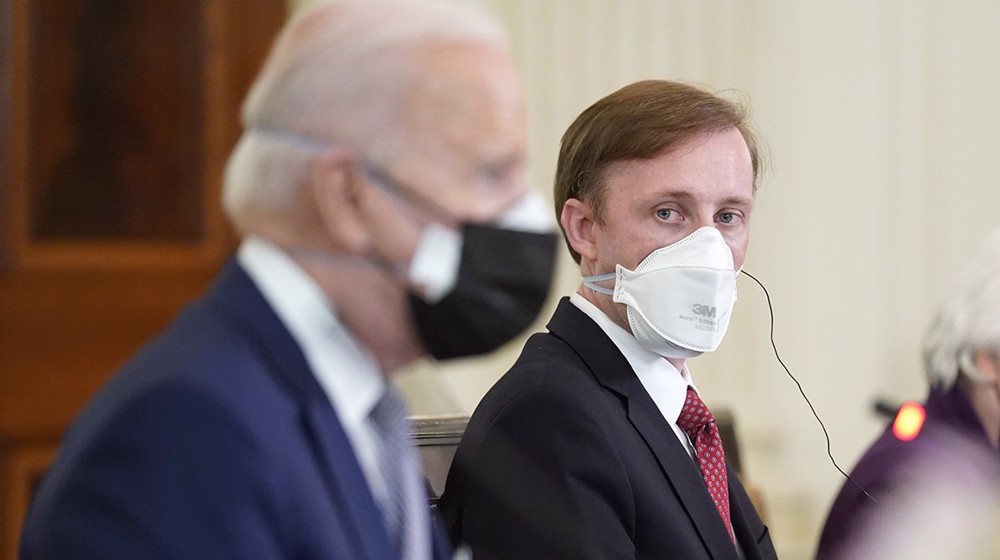
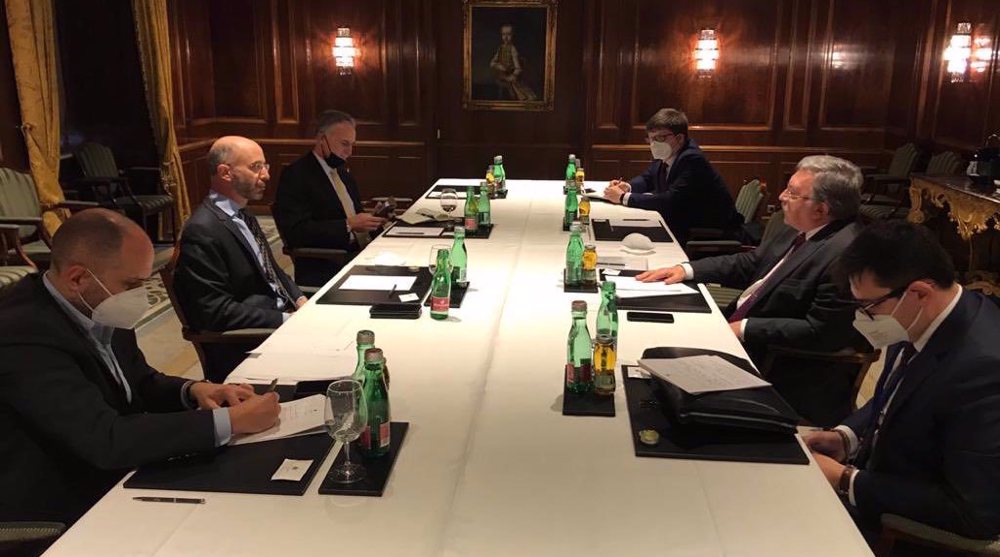
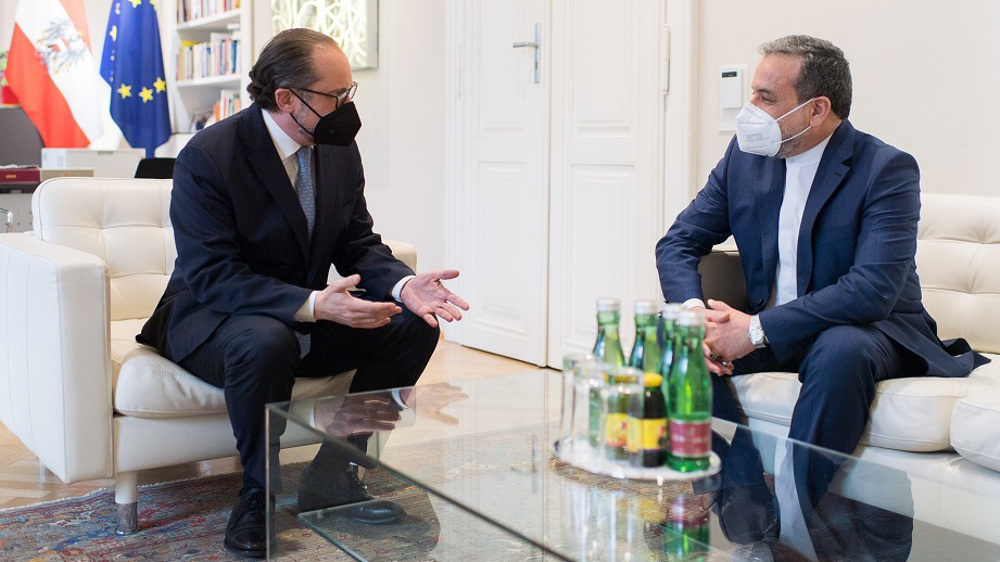
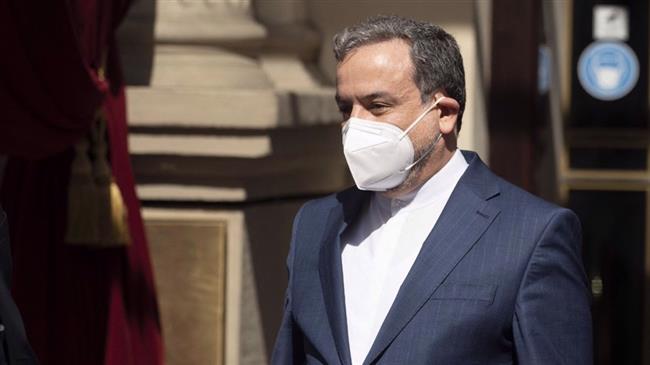
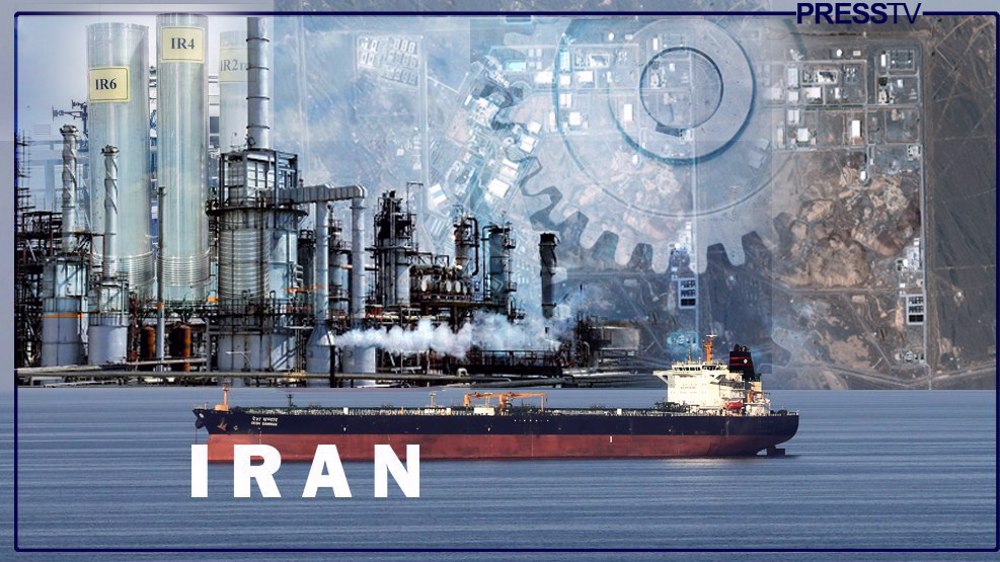

 This makes it easy to access the Press TV website
This makes it easy to access the Press TV website